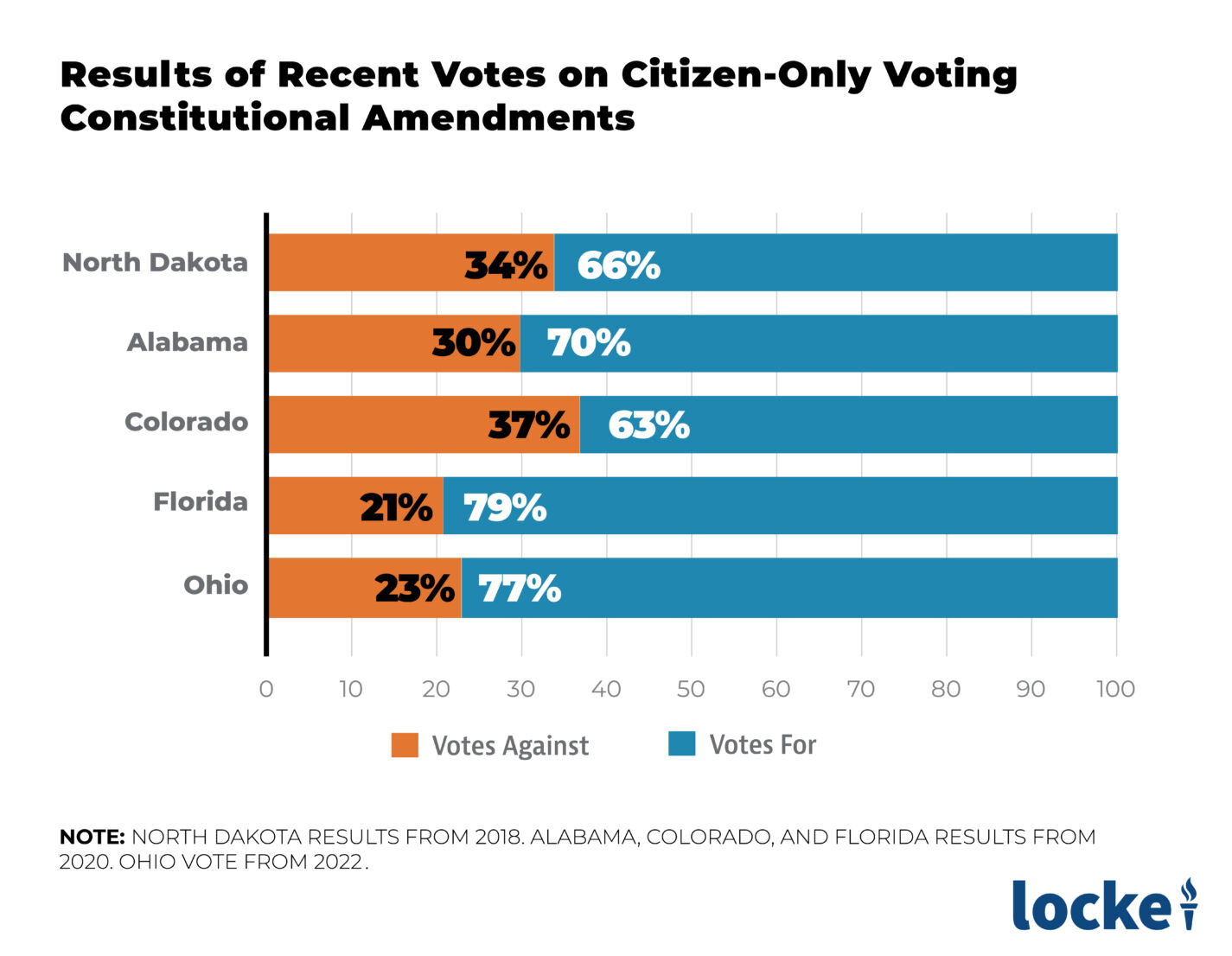- The literacy test should be removed from the North Carolina Constitution
- A requirement that only citizens may vote should be added to the North Carolina Constitution
- The General Assembly should put both amendments up for a vote of the people in 2024, but perhaps at different times
Voters in 2024 may have a chance to make two changes to the “Suffrage and Eligibility to Office” section of the North Carolina State Constitution. One change would remove something used to disenfranchise Black voters in the past. The other would protect citizens from having their votes diluted by future politicians extending voting privileges to noncitizens.
Repeal the Literacy Test
Article VI, Section 4 of the North Carolina State Constitution states: “Every person presenting himself for registration shall be able to read and write any section of the Constitution in the English language.”
On the surface, there is no racial intent behind that clause. That is why the U.S. Supreme Court unanimously ruled in Lassiter v. Northampton County Board of Elections (1959) that “The North Carolina requirement … does not, on its face, violate the Fifteenth Amendment.” The court acknowledged in the same decision that literacy tests “may be employed to perpetuate that discrimination which the Fifteenth Amendment was designed to uproot.” That question was not part of the case, however.
Of course, we know that the literacy test was applied racially:
[T]hose African Americans who tried to vote confronted racist polling officials who would ask questions about the state constitution that even legal experts could not answer.
The good news is that the literacy test is now unenforceable. The Voting Rights Acts Amendments of 1970 banned literacy tests, a ban upheld by the U.S. Supreme Court.
The bad news is that the literacy test is still enshrined in the North Carolina Constitution. It should be removed. While removing it would have no practical impact, it would be a strong, symbolic break with our state’s racist past.
Add Citizen-Only Voting
Article VI, Section 1 of the North Carolina Constitution states that “every person born in the United States and every person who has been naturalized” is entitled to vote in the state. While there are some other requirements (such as being at least 18 years old), the state constitution is silent on whether noncitizens can vote.
While North Carolina currently limits the right to vote to United States citizens, there is a nationwide movement to allow noncitizens to vote in local elections. In late 2022, the District of Columbia joined a growing number of states and localities allowing noncitizens to vote. Nor is this a new development. Most states allowed noncitizens to vote at some point in their histories, with North Carolina allowing it until 1856.
North Carolina currently bans noncitizen voting by statute, but a temporary majority in the General Assembly could seek to “reshape local politics forever” by granting resident aliens that right. In a state where a slim margin of only 401 votes decided a Supreme Court race and that has a recent history of hundreds of noncitizens registering to vote, this is not an idle threat.
In addition, the current language excludes natural-born citizens who were born overseas. That group includes people like Texas Sen. Ted Cruz (born in Canada), Illinois Sen. Tammy Duckworth (born in Thailand), and North Carolina singer and producer J. Cole (born in Germany).
A simple change granting the right to vote to “every citizen of the United States and only a citizen of the United States” would address both problems with the current constitutional language.
Getting to “Yes” for Both Amendments
Amending the North Carolina Constitution is a two-step process. The first step requires approval of an amendment by three-fifths of the state House and Senate. Once approved, the amendment is put up for a statewide vote “at the time and in the manner prescribed by the General Assembly.”
As a rule, proposed constitutional amendments should be voted on by as large a part of the electorate as possible. That means voting in general elections, which have much higher turnouts than primaries.
That electorate will almost certainly give broad support to the citizens-only voting amendment. Citizens in five states have voted on citizen-only voting amendments over the past five years. Voters overwhelmingly approved all five.

There is reason to believe that a statewide vote on removing the literacy test from the state constitution would be closer.
First, the General Assembly put repealing the literacy test up for a vote of the people in 1970, and the people rejected it by a margin of 56% to 44%. Also, the same seemingly innocuous language that led the U.S. Supreme Court to rule that the literacy test was not discriminatory on its face could lead voters to believe that it is a reasonable requirement for voting.
There is reason to believe that a new vote on repealing the literacy test would turn out differently from the 1970 vote. The North Carolina of today is not the same place as it was in 1970. Repeal has broad and bipartisan support in the General Assembly. The repeal bill has 84 sponsors and cosponsors in the 120-member House, including 43 Republicans and 41 Democrats.
If legislators are confident they can maintain that bipartisanship throughout the 2024 election, they should put repealing the literacy test on the general election ballot in 2024.
There is a danger, however, of one or both sides using the literacy test as a political bludgeon against the other, one consequence of which would be to drive down support for repeal. A way to avoid that would be to put repealing the literacy test before voters during the primaries, when partisanship would be less likely to jeopardize bipartisanship.
Repealing the literacy test and limiting voting to citizens only are two overdue changes to the North Carolina Constitution. The General Assembly should allow North Carolinians to vote on both amendments in 2024.
